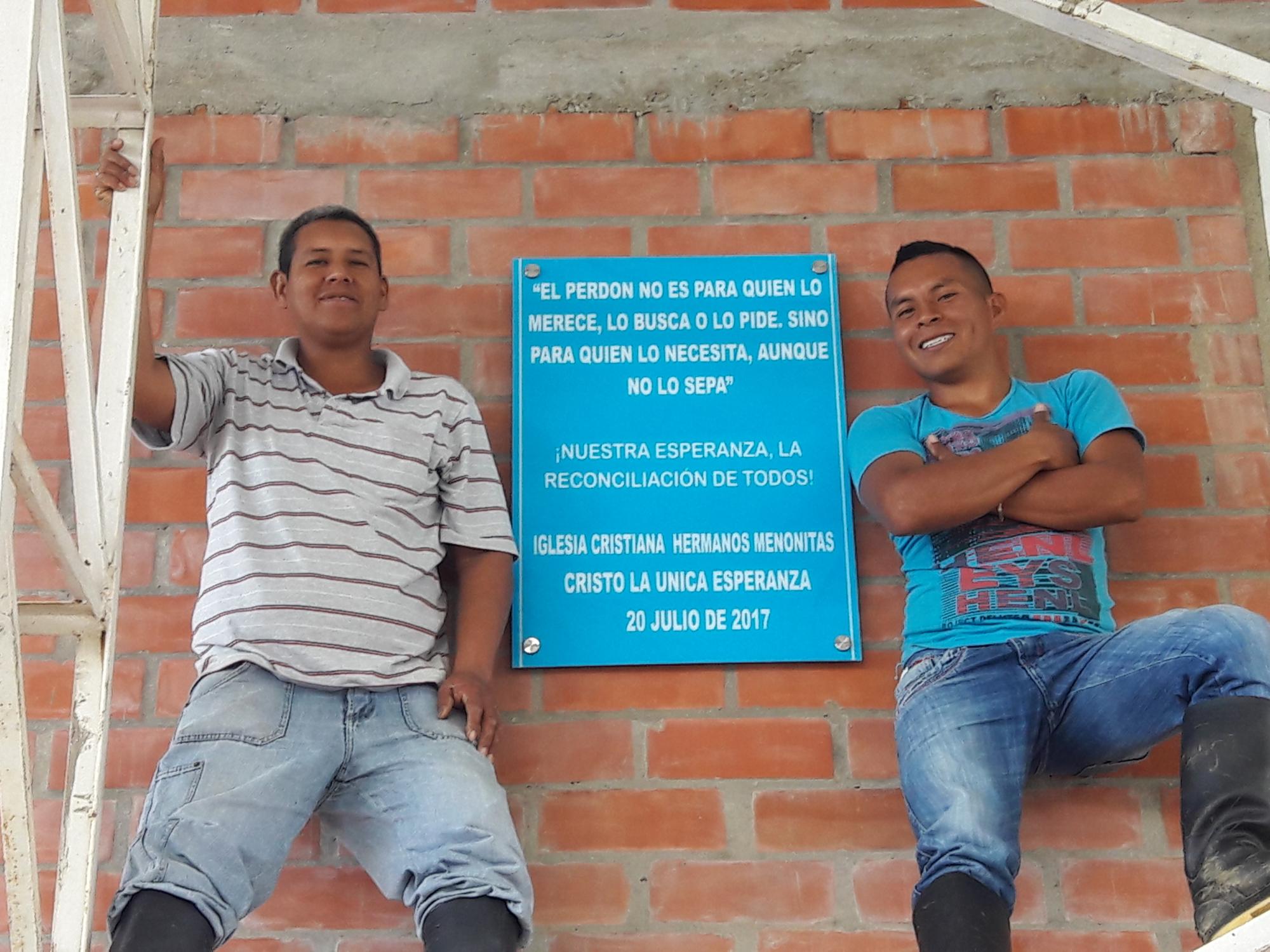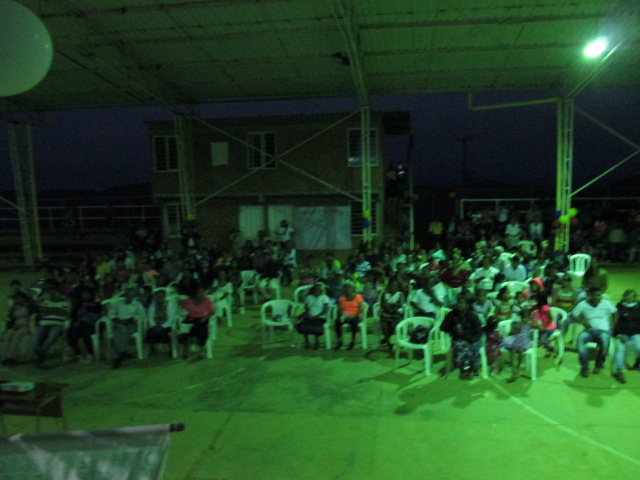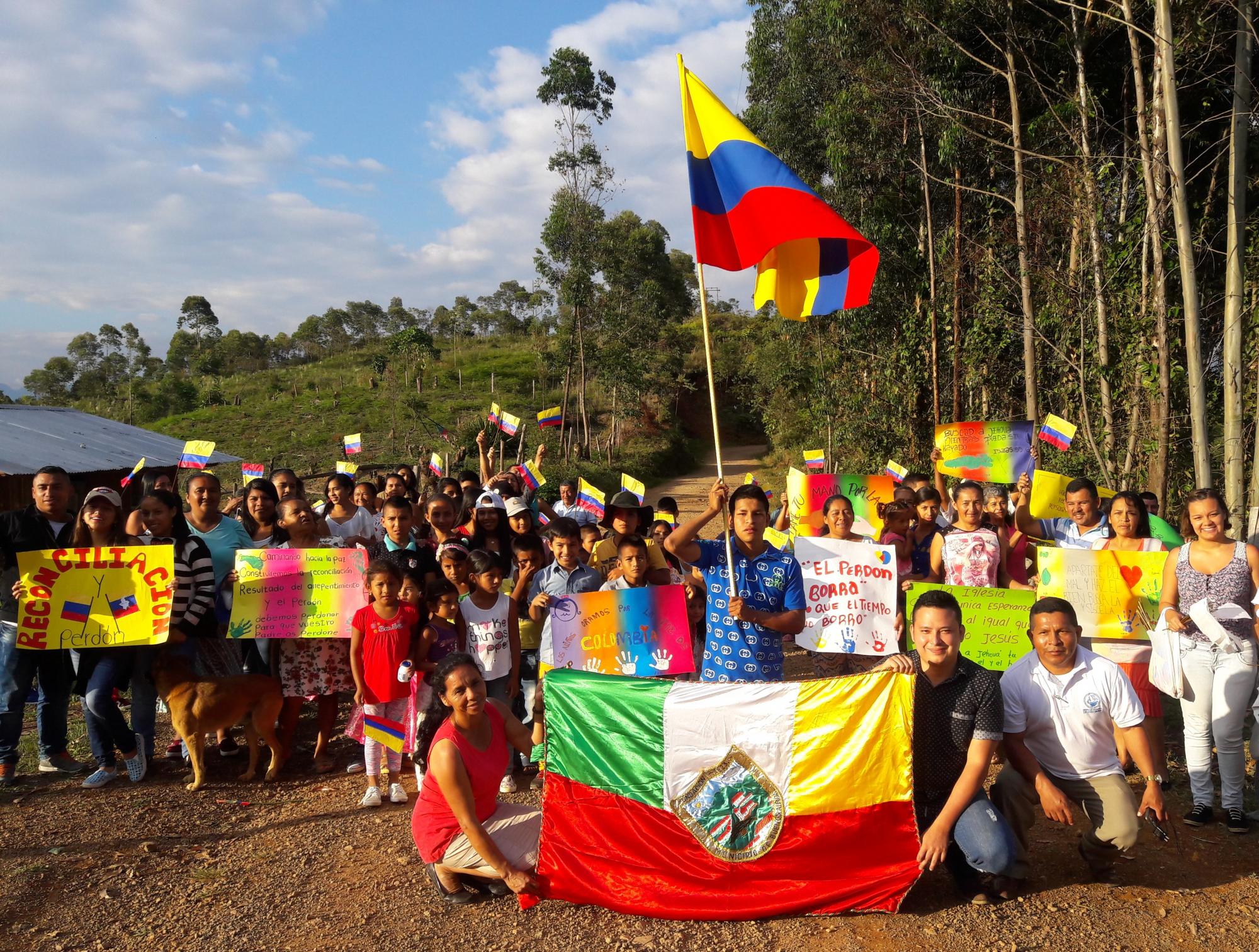Posted: October 25, 2018
Juliana Guazaquillo. Resident of the village of La Esperanza. “To forgive and to ask for forgiveness, doesn´t make you foolish and weak; it makes you wise and strong.” Photo: Sebastián Navarro Medina.
A local church in Colombia lives out peace
Why won’t a country forgive? Why are there people who seem to prefer war? These are questions that disturb the soul and invite us to look for answers, not in the cold streets of the city, but the forgotten countryside, in the small towns of Colombia directly affected by armed conflict.
On 19 July 2017, in search of answers to these questions, a team from Fundación Edupaz headed to La Esperanza, a village surrounded by deep green mountains and eternal blue skies.
Given its proximity to the Pacific Ocean, La Esperanza is a strategic area for the production and transportation of cocaine. For decades, many military groups exercised threatening sovereignty over the people with landmines, forced disappearances and outright combat.
Paradoxically, it was following a violent incident 13 April 2015 that a light began to dawn for the community of 500 families. (Read more.)

Edupaz entered the community through the Mennonite Brethren church to facilitate a process of healing, transformation and response. As we engaged with the community, we found a church willing to form spaces of peace and reconciliation, using organized group work and inspiration from the Word of God.
We knew there would be challenges. The village of La Esperanza was still marked with fear caused by 50 years of the armed conflict.
In light of this situation, new questions arose: What should we expect from a population who rejects war? What role could a rural church have in healing wounds, sharing forgiveness and creating spaces for reconciliation? What example would this small faith community give to the urban megachurches?
Our hope was to accompany the whole community in an event for peace, memory, forgiveness and reconciliation – with the participation of FARC-EP ex-guerillas from the village Carlos Patiño (a place where the ex-guerillas are grouped together to guarantee the cease fire and laying down of weapons).
To this end, on 20 July 2017, a reconciliation event took place. Children smiled and waved the flag. Combatants of the FARC-EP walked firmly toward a different life. The community took no account for political, religious or social difference, but through songs to eternal God, made space for public repentance and sincere forgiveness, for reconciliation between victims and victimizers.

Every step was directed toward the town’s sports centre. This infamous arena would no longer be remembered as a place where death, terror and wrongs of the war met on a rainy April night, but rather as a place where the community came together to worship, forgive and love.
During the activity, everything happened in perfect harmony. Children created a representation of what war meant to them. People sang songs of peace as prayers to the heavens. The church invoked God’s presence and support. Social leaders and state representatives gave hopeful messages. And an ex-combatant asked for forgiveness for what happened in that place.
A plaque memorialized the motto of the day: “Forgiveness is not for the one who deserves it, seeks it or asks for it, but for the one who needs it, although they are not conscious of it.”

Finally, under a star-lit sky, hundreds of inhabitants of the village La Esperanza held glowing candles representing the spark of hope that illuminated the whole country. Everything that night was hugs, unity and messages of reconciliation. It was the first coming together of those sons, daughters, and fathers who had once joined the war but today hope to return to their homes to build a new life and heal wounds inflicted by violence.
Now, this community is being transformed into a place with open doors and smiles. People are ready to contribute to the construction of a stable and lasting peace. True to its name, La Esperanza has become an example for Colombians, showing that healing and forgiveness is possible, changing a gray and gloomy picture into a blue sky of hope.
That day in the stadium, with the presence and participation of many, unfailing love and truth met together; righteousness and peace kissed (Psalm 85:10).
—Juan David Morales Sánchez, coordinator of the Actuar desde la Palabra (Act from the Word) program of Fundación Edupaz, a non-profit organization founded by the Mennonite Brethren Church in Colombia to promote peace and conflict resolution through training sessions and accompaniment.
Comments: